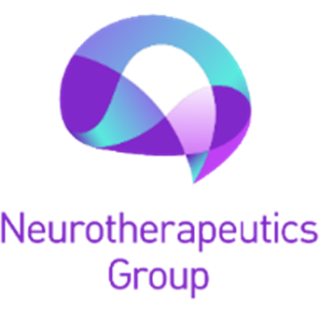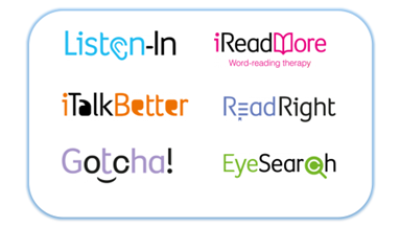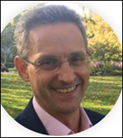Professor Alex Leff is a Professor of Cognitive Neurology and the leader of the Neurotherapeutics group in the Brain Repair and Rehabilitation department at the UCL Queen Square Institute of Neurology. Professor Leff is also a consultant neurologist for the UCLH National Hospital for Neurology and Neurosurgery where he directs the specialist out-patient multidisciplinary team for patients with hemianopia and/or higher disorders of vision.
His academic work is focused on understanding lasting language dysfunction caused by stroke: generalised language dysfunction (aphasia) and isolated reading dysfunction (alexia), are amongst the most disabling post-stroke symptoms. Aphasic strokes are very common (up to 33% of all stroke cases with approximately one occurring every 30 minutes in the UK alone).
Why would we want to use an app instead of a language therapist?
There is a huge clinical need for language therapists in the UK. On average, a healthy person takes ~250 hours to learn an easy language and ~500 hours to master a difficult one. Speech and language therapy (SALT) studies show that people affected by language disorders have a positive outcome when they train ideally ~100 hours. Unfortunately, at present, the number of hours accessible by the NHS is only 12 on average. Not everyone can access a private specialist, either for money, time, or geographical location. Therefore, there is a clear clinical necessity that we made it our mission to address.
What are the possible pipeline flows from the ideation of an app to its release?

Both apps are practice-based-treatment and we chose not to carry out a classic phase II trial, but to deploy them as free web services and perform a surveillance phase analysis on the data collected. With this model, the issue was to demonstrate that the real differentiator was due to app usage and not people spontaneously getting better over time. We realised that a measuring function of improvement was the key to informing the outcome measures. This factor was included together with a task (a comparator) in which we did not expect performance to improve.
We were then awarded other funding from the NIHR (National Institute of Health and Care Research, Invention for Innovation) and MRC (Medical Research Council). With these funds we were able to develop five new treatment apps, one including virtual reality. For these projects we decided to approach an external gaming company that helped with the phase I development stage. We were lucky because the company was recommended through a UCL connection and the agreements we opted for, to ensure all IP (copyright of the source code) remained within UCL, were in the form of a service. Like this, we were simply paying for their work in developing the product which included both writing the code but also designing the web art. In this instance we were able to carry out a standard phase II clinical trial. Including this phase or not depends on many factors, such as whether you plan to apply for a medical device certification or not, and the amount of money you have available: it can become very quickly very expensive seeing the dedicated specialised team you need to hire to run it! Helped by the JRO (Joint Research Office) team, we applied for MHRA/IRAS ethics and decided to carry on a phase II for different apps (Listen-In and iReadMore) for which we designed a within-subject randomised trial: with patients going through two time periods (blocks) of many weeks, one when they were using the app and the other with the app withdrawn. The studies showed that the patients’ targeted language functions improved in the therapy block but not the control block. These gains were maintained after app use stopped. The feedback was also pivotal for our research team because we were receiving a lot of usage data with which we could improve the code.
Phase III was the public release or roll-out, and there were a series of models to consider. The classic path would have been facing the full regulatory journey going through the NHS, another one could have been to deal with insurance with some sort of restrictive licence, finally, we chose to interact directly with patients. For this purpose, we went through the process of cataloguing our apps and we self-certified them as class 1 medical devices: this means that our apps are considered as low risk for patients' health. We also have an additional certification from the technology provider ORCHA (The Organisation for the Review of Care and Health Apps). The apps are running on UCL servers and are available to download on a subscription model after a free trial period from the Google and the Apple store. We are arranging for Amazon Web Service to take over the smooth running of the apps and for the revenues to go back to UCL. We are now also considering applying for the NHS Digital (DTAC), but this needs a bit more work and financial investments.
Recently, we have decided to spin out from UCL into a company called Neurospeech AI. With the help of UCLB we have agreed a model called Portico Ventures. Our code is not publicly available and is protected by copyright. In this case, the team does not expect to have a massive return but still aims to have a societal impact and the University is entitled to own a 5% equity. Being able to spin out offers a lot of freedom from bureaucracy and flexibility.

How many people worked on these several projects and for how long?
We had many people working on these seven apps over the years: 3 PhD students, many research assistants and post-docs. We hope to get more investment to be able to hire more people to help us deal with the cryptic bureaucracy of the various regulatory agencies.
What is the next step for success?
Ideally, we need a partner, an investor, or a company, to help us with investment for marketing and further product development: we think this is very critical for patient awareness and adoption. We are also considering business loans, applying for a specific Innovate UK call.
If you could do these projects all over again, what would you change or what would you say to your younger self?
It was a very hard journey, but I would do it all over again, we did a lot of good for thousands of people and we could do a lot more! For the future, I hope UCL Innovation and Enterprise will invest in creating more jobs and departments that help juggle the research team through these numerous MedTech steps, evaluation of various business models and hands-on support with regulations. This will speed up having returns, being self-sustainable and amplifying impact.

Alexander Leff, Professor of cognitive neurology & consultant neurologist, UCL Queen Square Institute of Neurology & Institute of Cognitive Neuroscience, National Hospital for Neurology & Neurosurgery, UCLH
Links
- Leff Lab Therapy Apps
- Video on Read Right
- Read Right registration
- Eye-Search
- Listen-In
- iReadMore
- JRO (Joint Research Office)
- Portico Ventures
 Close
Close

